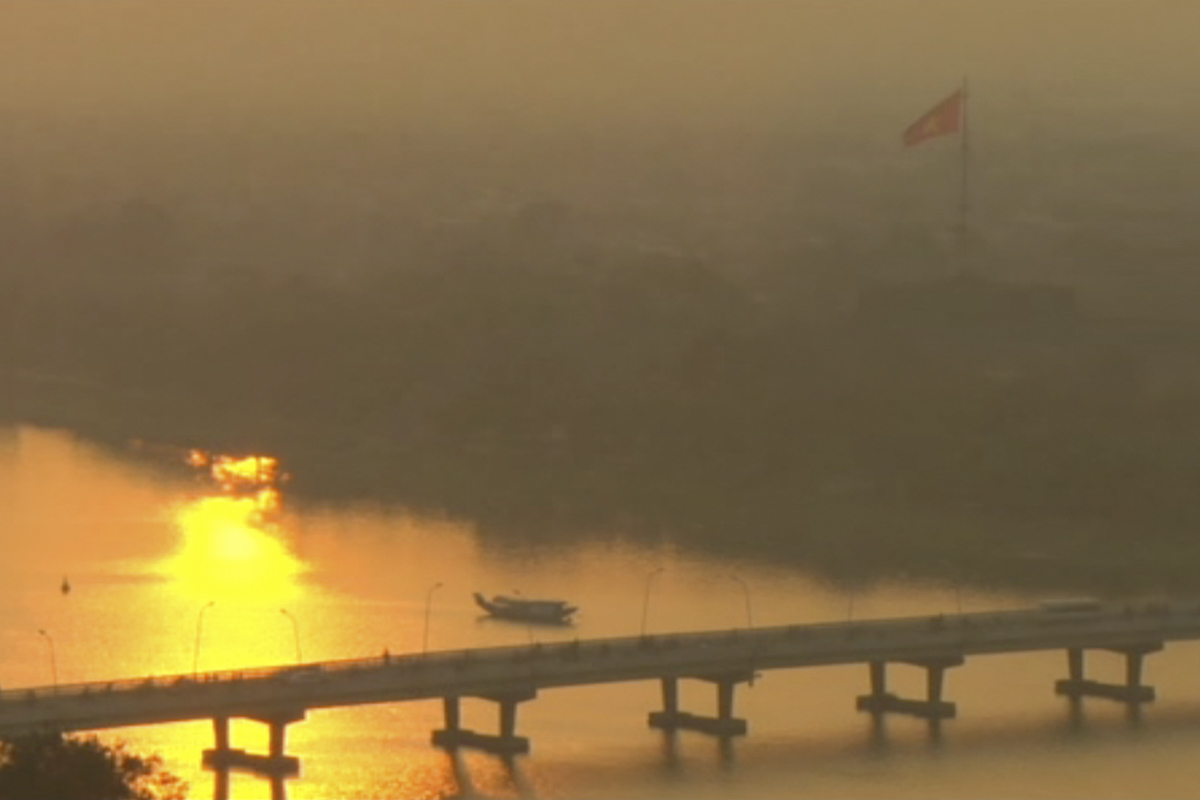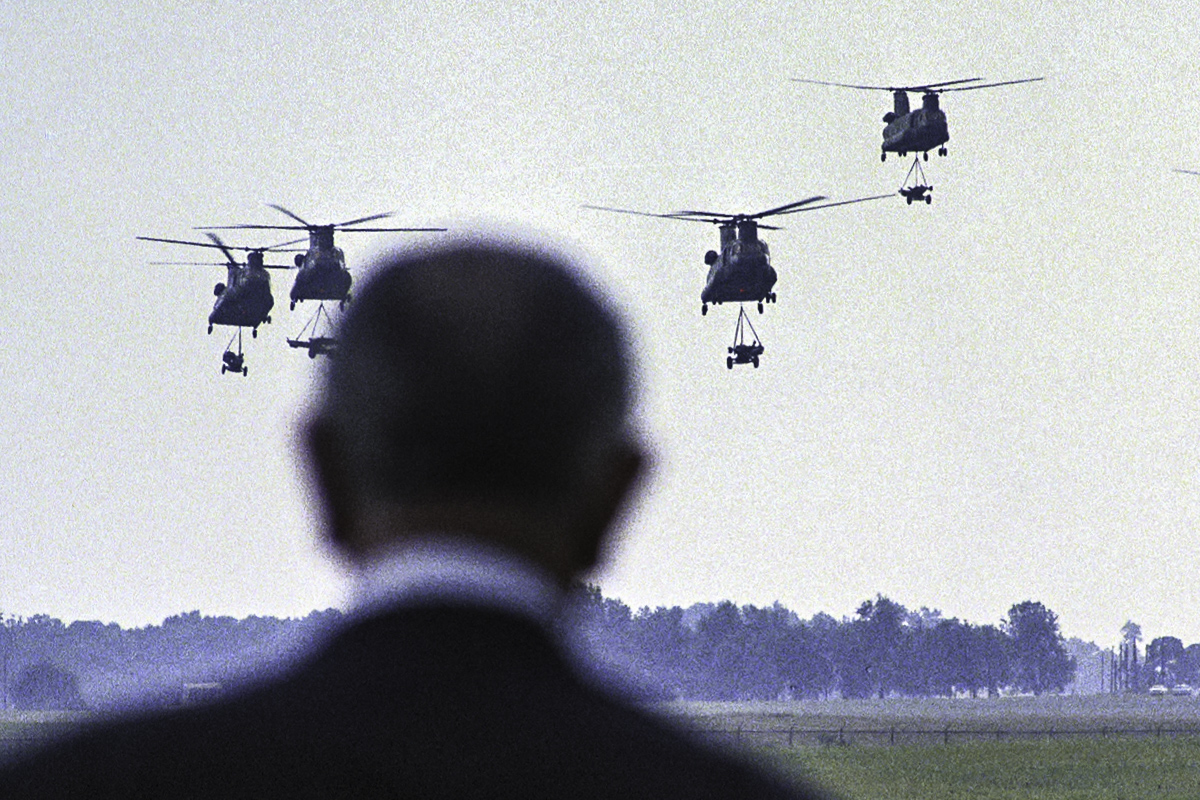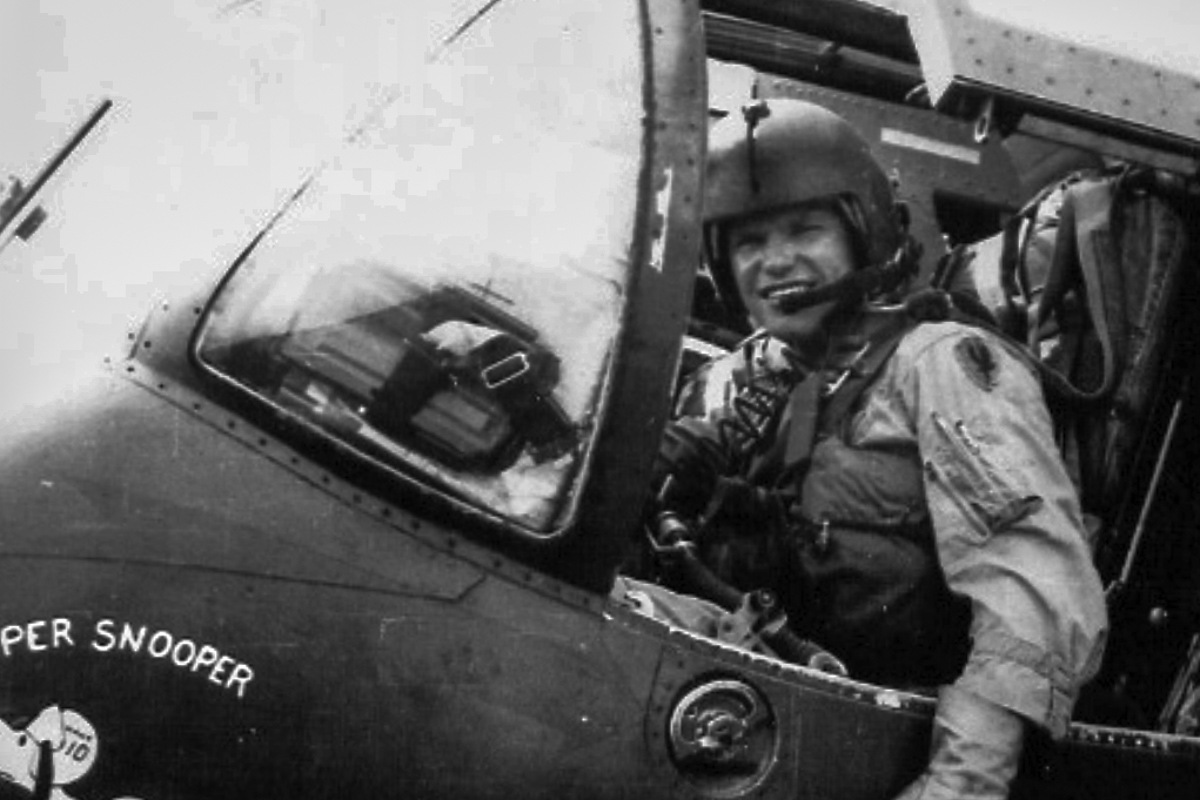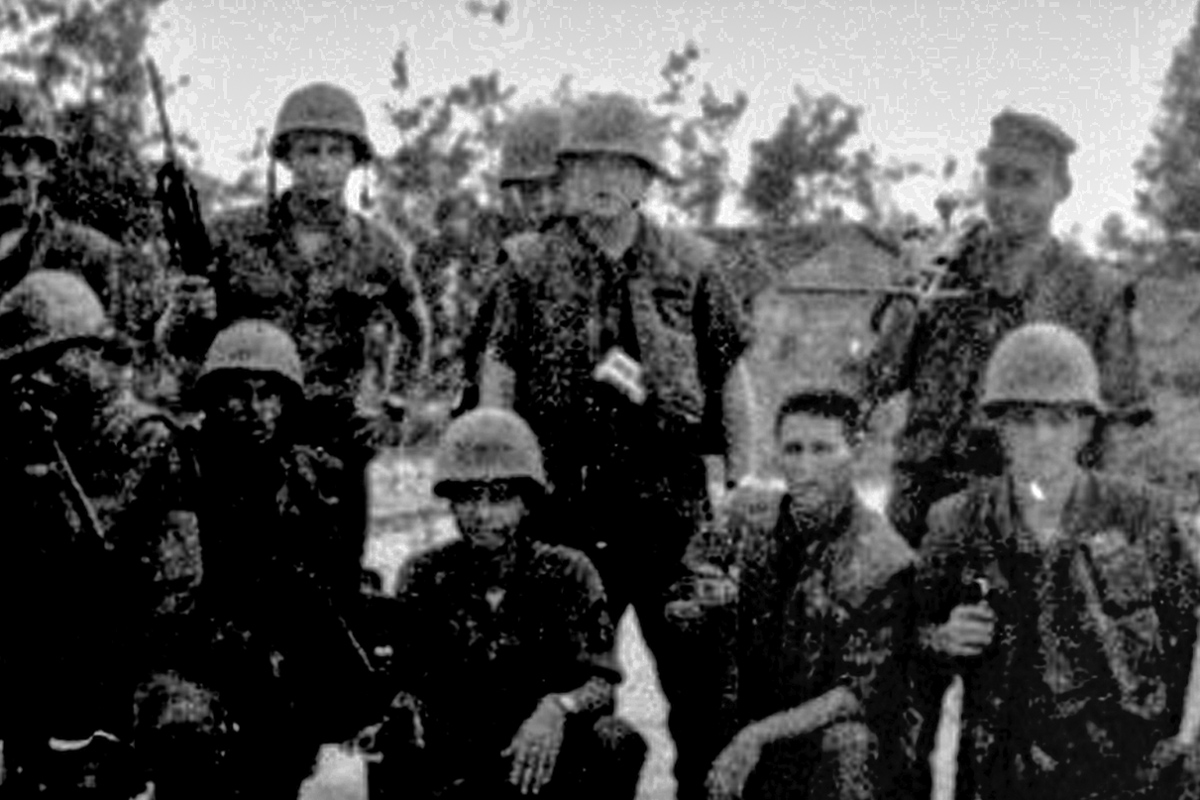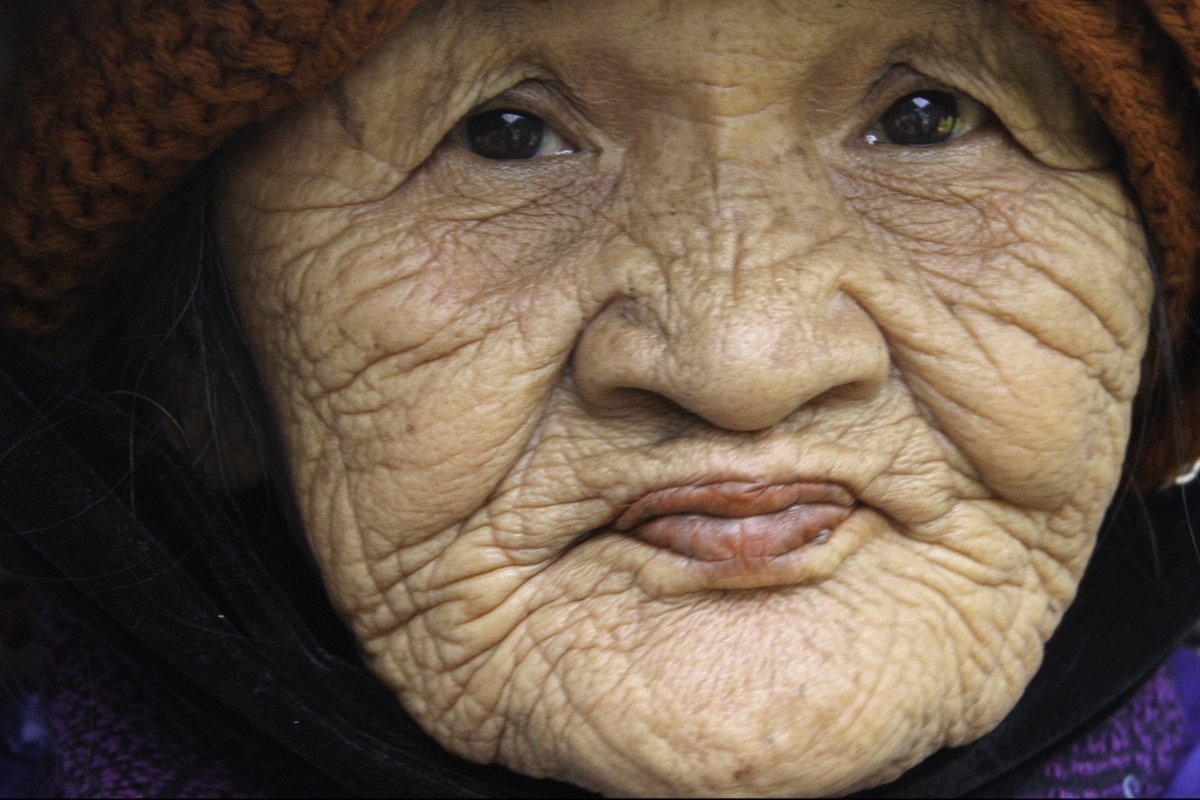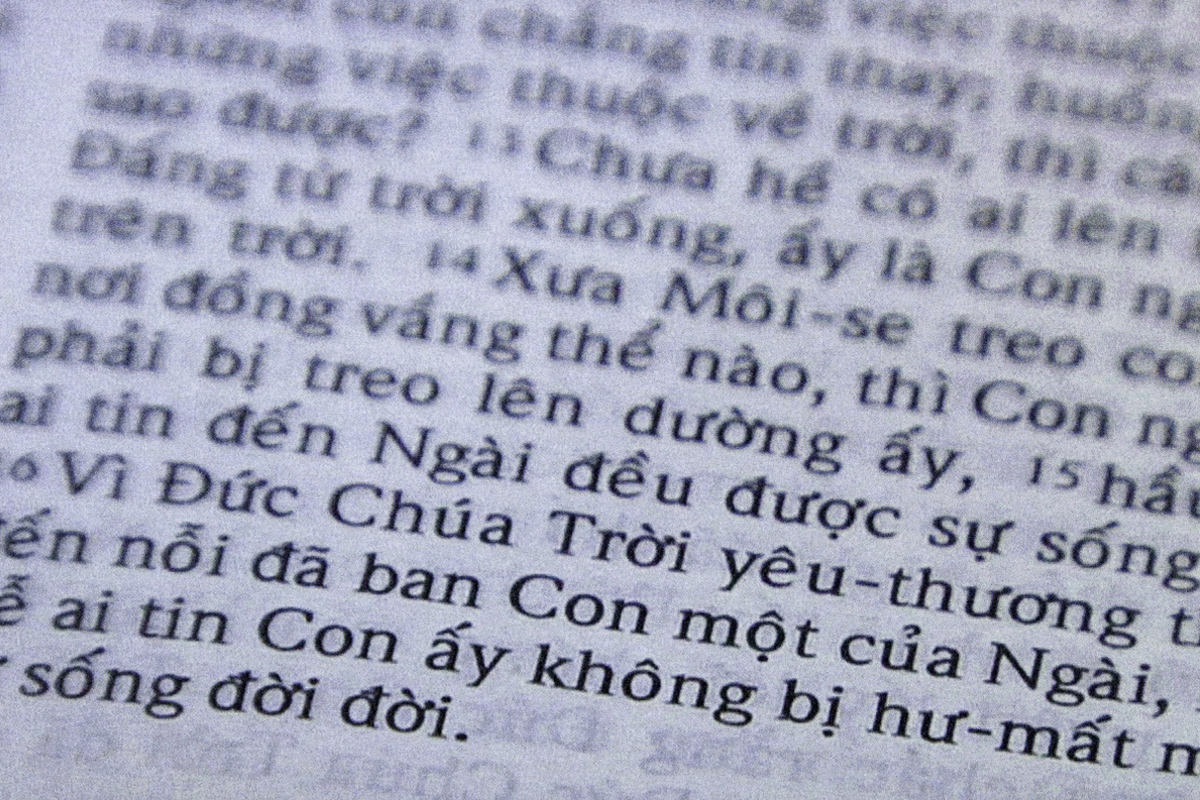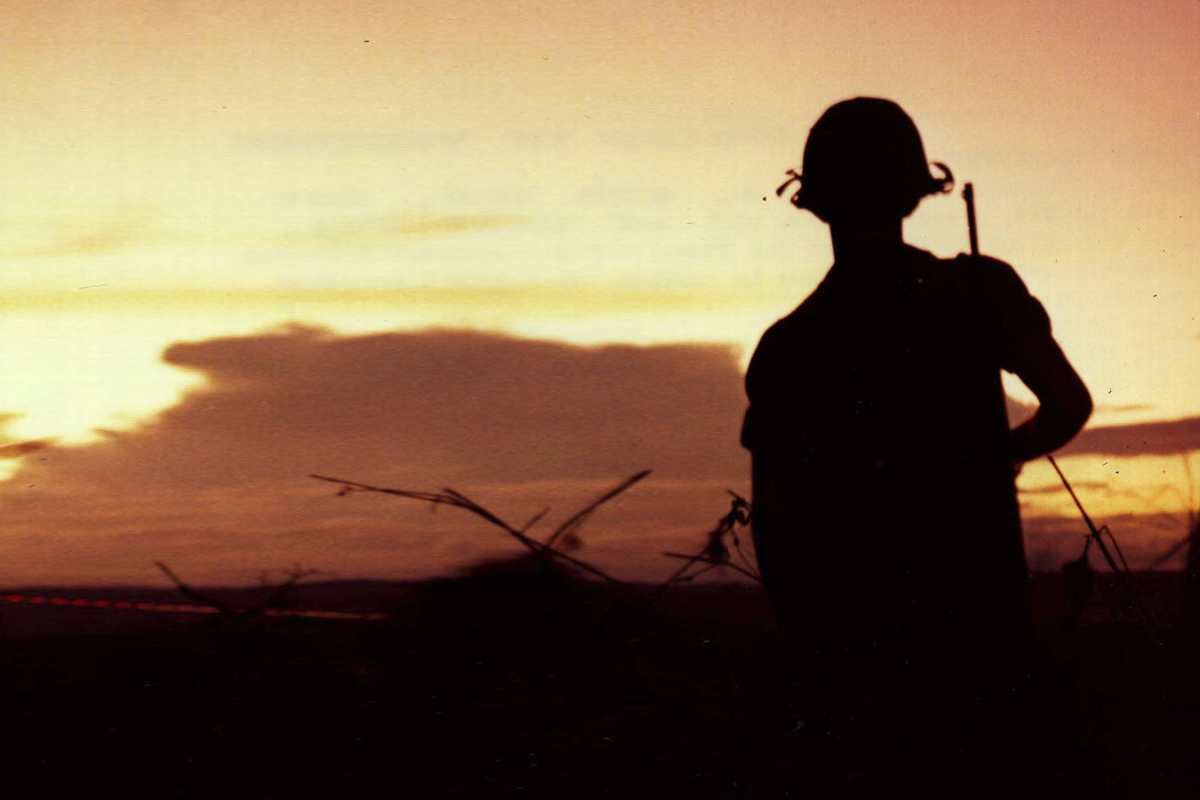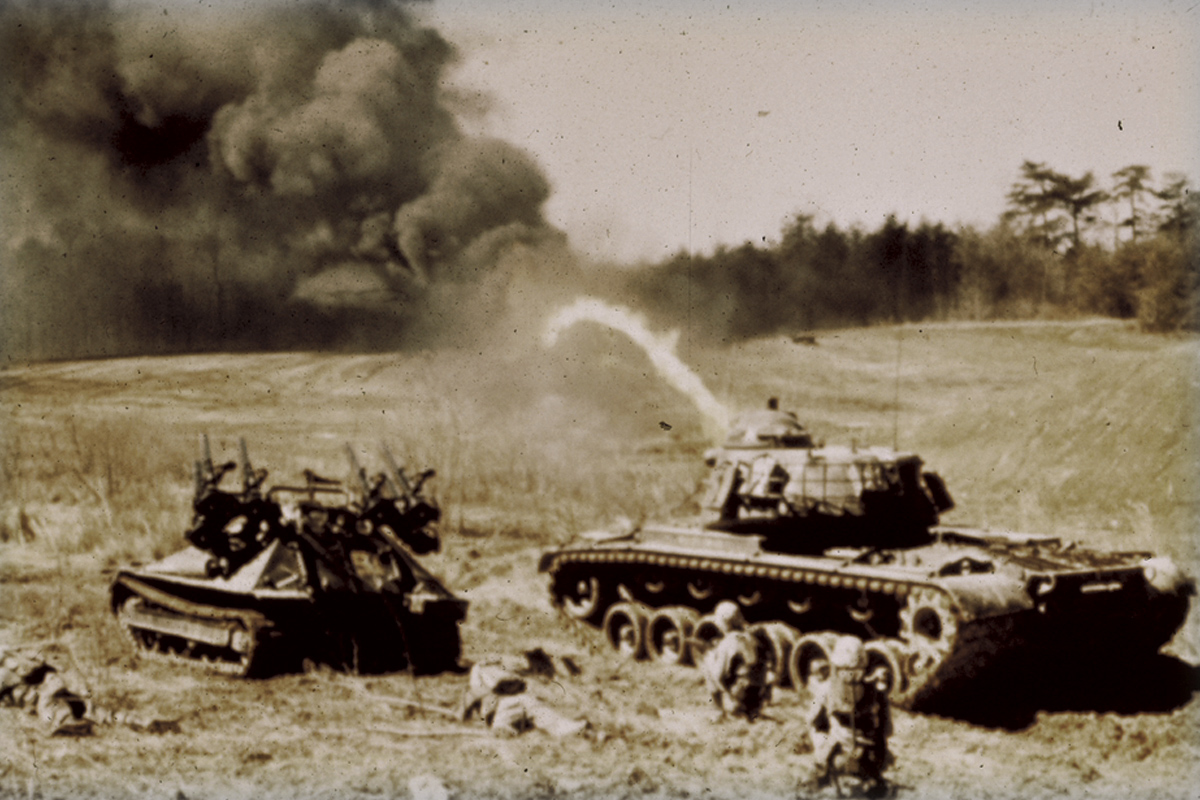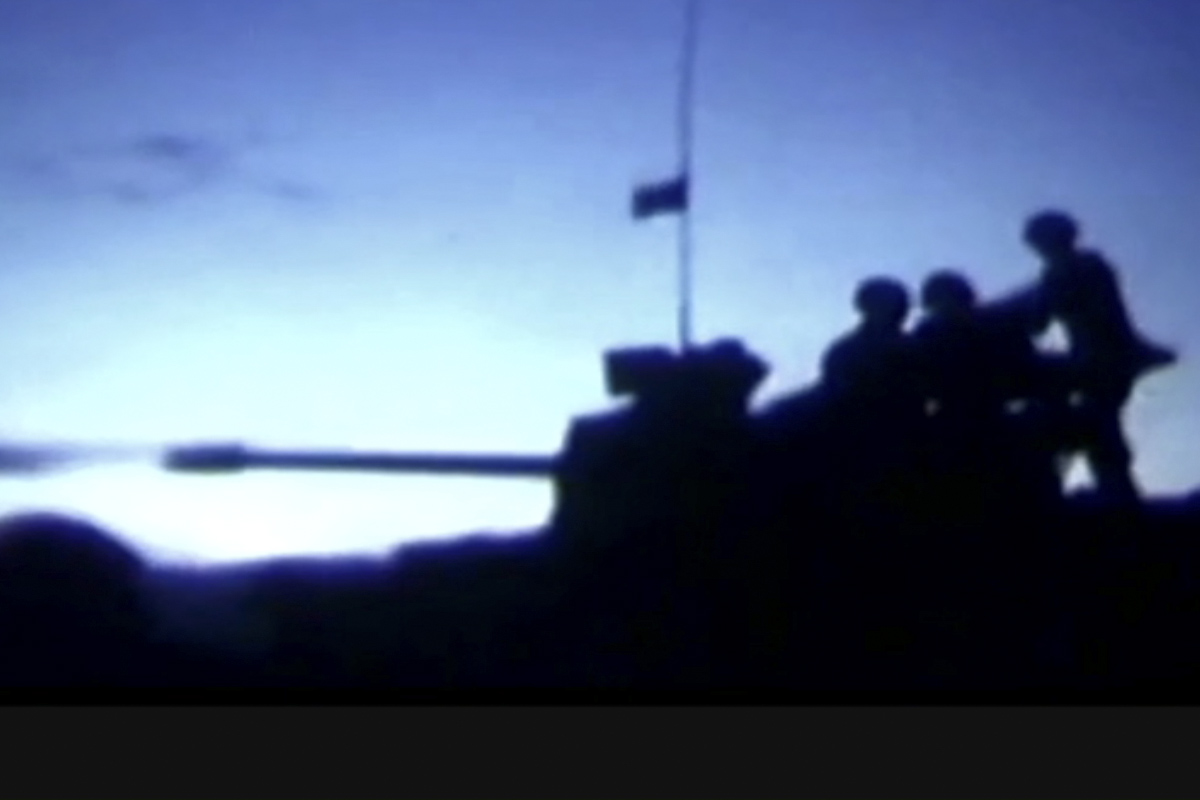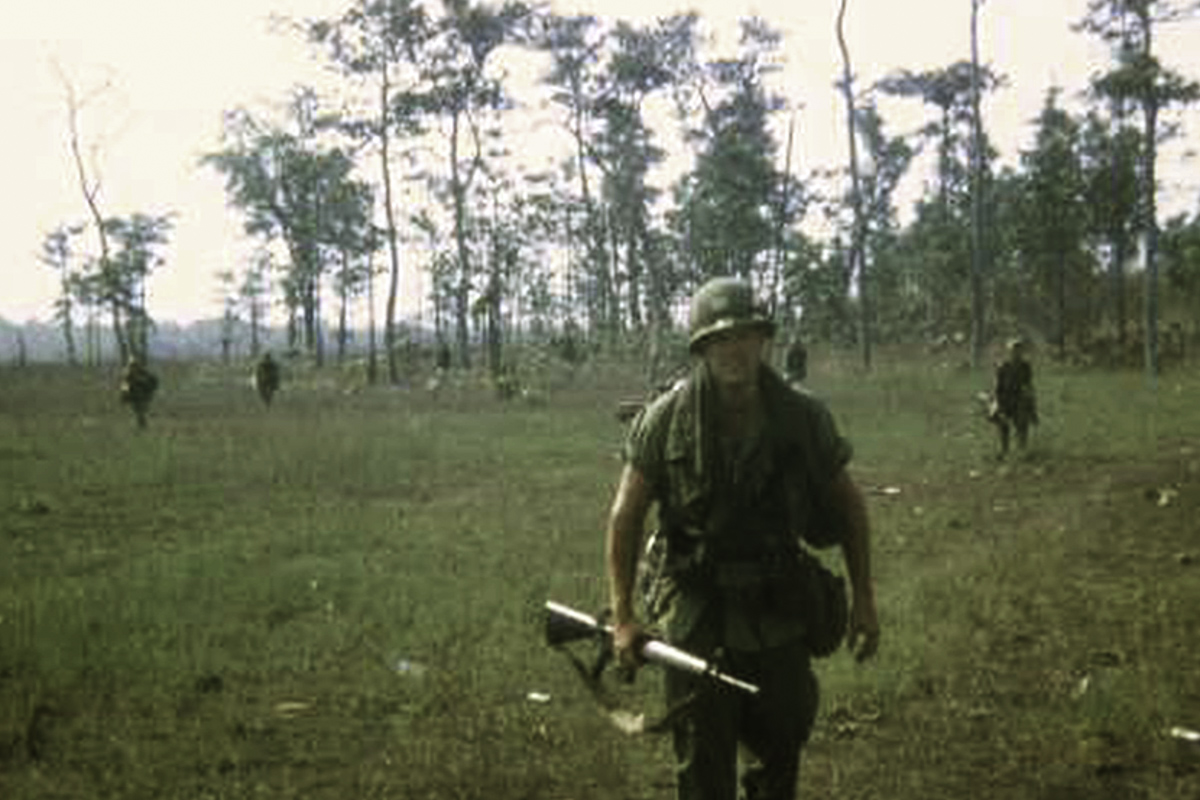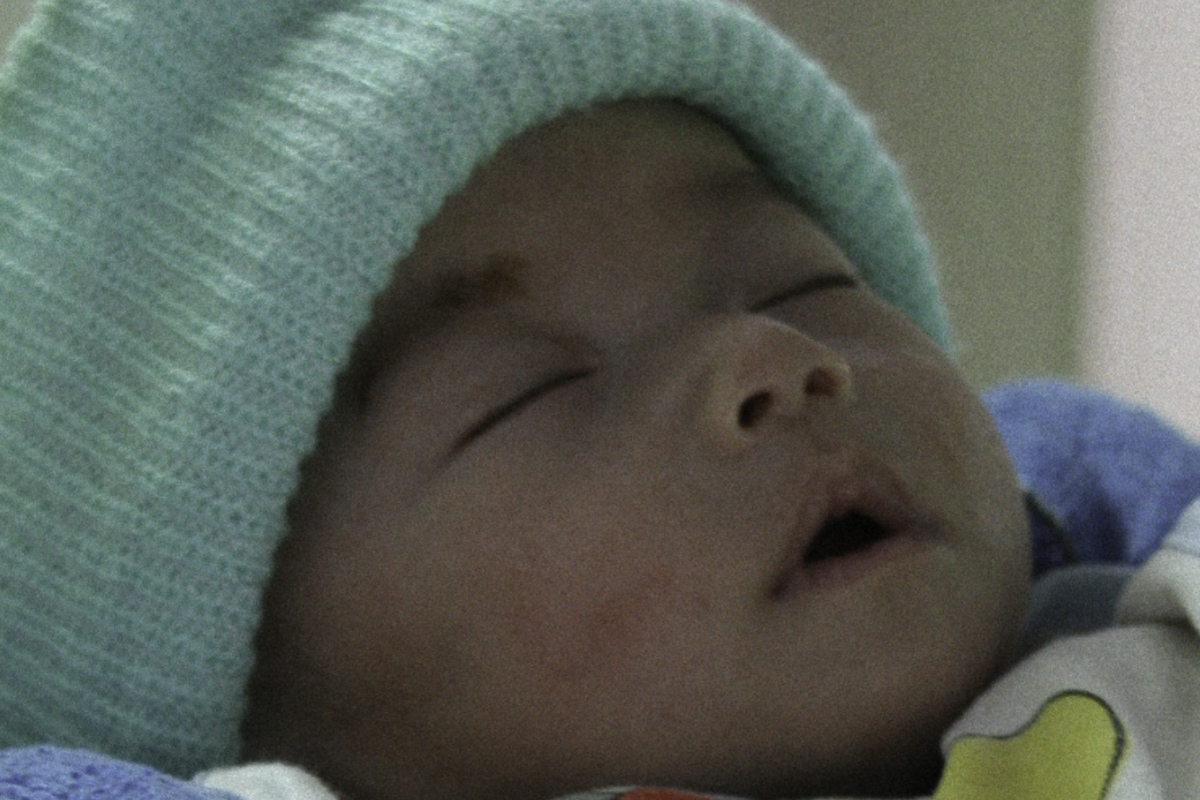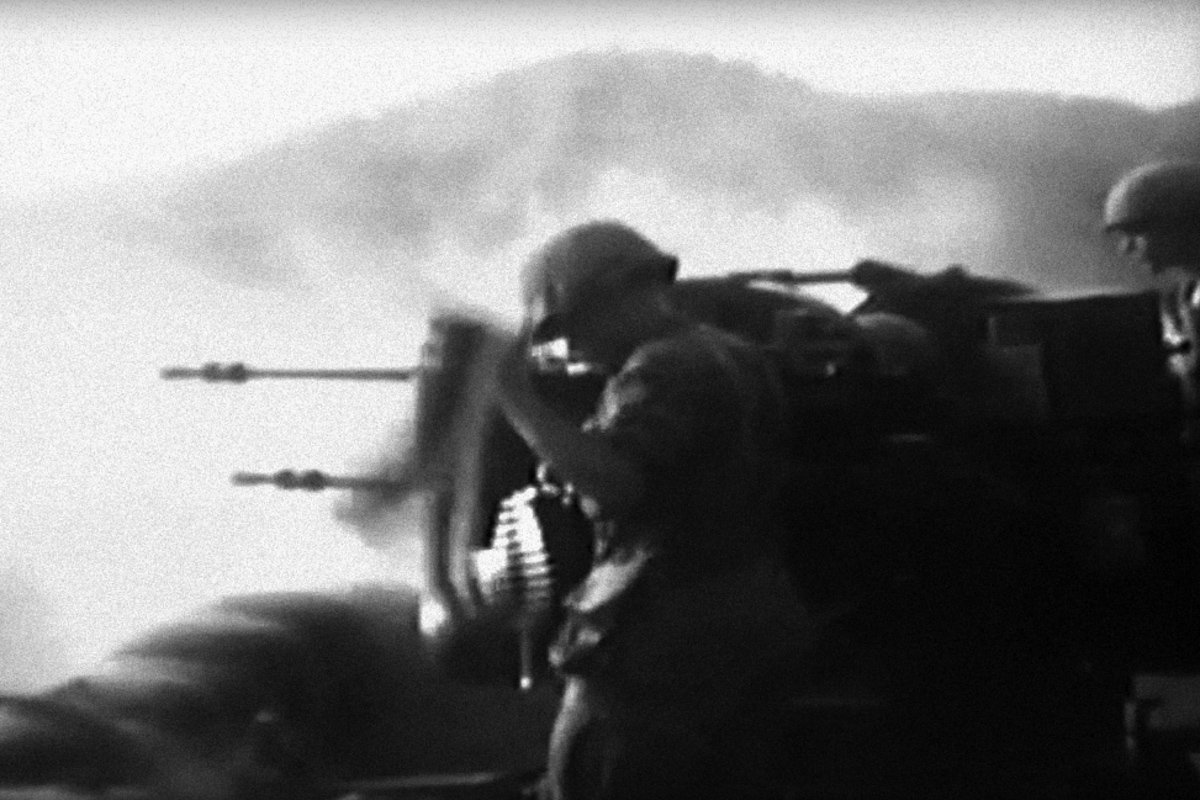
Walt Griffin
Episode 04 — My Worst Day In Vietnam – Part 2
Podcast: Play in new window | Download
Subscribe: RSS
SUMMARY: How would you describe you worst day in the war? Five Vietnam War Veterans describe their worst days during the war. Part 2 of 2.
TEASER — Phil Carney: I could tell that people were panicked about something and they were pointing back, and I walked deeper into the water. I was real tall, and I got to about chest deep in the water and I figured out what was going on. There were children in the river that were being swept away.
INTRO — Kent C. Williamson: War is not pretty. It is not fun. It is not a video game that you turn off when Mom calls you for dinner. It’s not a movie nor a series on Netflix. It’s awful. At least that’s my perspective. Of course, I’ve never fought in a war. I was born during the Vietnam war and like many from my generation I only remember glimpses of it on the television set around supper time as a kid. But even the best news report can’t really capture what war is. Last time on the show we heard three Vietnam veterans tell us about their worst days during the war. Today we’ll hear from a few more. By the way, we don’t produce this show to try and glorify war, but instead we hope to give a little glimpse of the reality of it. In this episode we’ll also get a visit from a Civil War general, that’s right, a Civil War general who lives on in the words he left us about the brutality of war.
Welcome to the By War & By God Podcast, I’m your host Kent Williamson. This show is a companion series to the award-winning documentary film By War & By God. It’s a place where we can go deeper into the stories of the lives of these veterans than we’re able to in the film. Over this season you will hear the remarkable accounts of people who’s lives were forever changed by the Vietnam war. You’ll hear stories of heroism, and stories of tragedy… but you’ll also hear some amazing stories of reconciliation, and you’ll learn about a magnetic force that tugged and pulled and eventually drew these soldiers, medics, machine-gunners and crewman back to Vietnam for the purpose of serving some of the poorest of the poor in that beautiful country.
But before we start, I need to tell you about Big Heaven Cafe. Big Heaven Cafe is a simple web store with a few films to buy, including the documentary By War & By God, so if you have yet to see the film, or if you need a copy for a friend, a history buff, your school library, or a Vietnam veteran that you know, please click your way to Big Heaven Cafe dot com. That’s Big Heaven Cafe dot com and use the coupon code “podcast” to save five glorious bucks on the film. Oh, remember… 20% of all sales of By War & By God from Big Heaven Cafe go to Vets With A Mission, the non-profit that since 1989 has taken nearly 1400 Vietnam Veterans back to Vietnam. Why do they take them back? For healing and reconciliation.
WARNING: Alright, a quick warning to listeners that there are some rather disturbing events described in today’s episode, so now would be a good time to skip out if you’d rather not hear this.
Okay, let’s go back in time over 150 years… William Tecumseh Sherman was a general of the Union Army who fought in the Civil War. Sherman was at the first battle of Bull Run. He served under General Grant at the battles of Shiloh and Vicksburg. Vicksburg, by the way, was a battle that two of my great-great grandfathers fought in… both fought for the South, against Sherman. Before Sherman died in 1891 he left us a number of quotes about the reality and harshness of war. The voice you are about to hear is not the real voice of Sherman, we’ve used an actor for this part of the show. Without further ado… William Tecumseh Sherman…
“I am tired and sick of war. Its glory is all moonshine. It is only those who have neither fired a shot nor heard the shrieks and groans of the wounded who cry aloud for blood, for vengeance, for desolation. War is hell.”
When you are good at war you get things named after you… the USS General Sherman.. a civil war gunboat, the Sherman Tank from World War II, and two different Fort Sherman’s, one in Idaho that closed in 1900 and one in Panama that began in 1912, which we gave over to Panama in 1999… all of these named after William Tecumseh Sherman who knew that war was hell.
Kent C. Williamson: What about your worst memories? Tell me about your worst day in Vietnam…
Walt Griffin: Well, I was sitting on perimeter watch at LZ Baldy…
DROP IN — Kent C. Williamson: LZ Baldy or Landing Zone Baldy (also known as Hill 63) was a base for the US Marines, US Army, and the Army of the Republic of Vietnam. It was about 25 miles South of Da Nang. This is Walt Griffin…
Walt Griffin: Well, I was sitting on perimeter watch at LZ Baldy. We had a village out about a click and a half, which would be about a mile. And all of a sudden all hell broke loose. Explosions… They were close enough that I could see people running back and forth and just a lot of gunfire. And we had a CAP Patrol out there. Well the next morning I found out that we lost two guys and the Vietcong, or NVA – I can’t remember which it was – but they went through that village and since there wasn’t many men there they shot and killed about 160 women and children. And right then and there I was just in shock what war was. I hadn’t experienced anything like that before or even after that. I never experienced anything like that again.
Kent C. Williamson: How do you process that? How do you even try to make sense out of it?
Walt Griffin: Well I think a lot of times you just put it out of your mind, you go on about your business, you don’t think about it, you do your job. You know, you just don’t think about it, but then every once in a while something will hit that and you just… To this day, even in my trips back… on my first trip I tried to find that village and I couldn’t. I found the base I was on, but nobody really knew… I think it was a temporary village and so I never did find that. I was wanting to talk to the people there and reconcile with those people.
Kent C. Williamson: What would you say was your worst day?
Pat Cameron: The worst day was when I had to go work the emergency room…
Kent C. Williamson: This is Pat Cameron…
Pat Cameron: We had some incoming helicopters coming in one of the nights and we had more body bags than we had people. That was a bad night. I think if I remember we had about 12 to 13 body bags, six patients, and half of those didn’t make it. That was a bad night. I didn’t cry a lot because I must have had a lot of anger. I still have visions of that, of the body bags. I even have visions of people moving in the body bags. I just hadn’t been around death that much. Death is tough on a young guy. It was tough on me. It’s still tough on me. They didn’t have no life, they didn’t get a chance to enjoy nothing. A lot of them were there because they didn’t want to be there, they got put there. Those were the bad days. The good days was when you patch somebody up and you know he’s gonna make it. Being a corpsman is not easy. Even though I was a specialist I still saw a lot of blood, you know, and before I became an eye surgeon I had to learn to be a basic corpsman. I had to learn how to do things and I still put those things to use when I worked in the emergency room. But those were bad memories, those were not good memories. They’re not memories that I want to dwell on. That’s why I know I’m blessed to be here. I guess I’m blessed for the fact that I did get exposed to it or maybe I never would have gone back to Vietnam.
Kent C. Williamson: We’ll learn more about what these Vets are doing in Vietnam today in a future episode.
Kent C. Williamson: What about your worst day?
Steve Scott: Well, I’m not going to go into too much detail but I had a very close friend… the day he died. Operation Arizona.
DROP IN — Kent C. Williamson: Operation Arizona took place in June of 1967 and included the resettlement of over 1600 refugees to a more safe location south of Da Nang.
Kent C. Williamson: This is Corporal Steve Scott.
Steve Scott: Operation Arizona. I don’t want to go into detail with that, but he was…
Kent C. Williamson: You lost your friend.
Steve Scott: I lost my best buddy.
Kent C. Williamson: Tell me about your worst day in Vietnam…
BREAK: But first, if you served in Vietnam and would like to share the memory of your worst day, I would like to hear it. Or perhaps your Dad or Uncle or Aunt served and you’d like to ask them about their toughest day there. You can record it on your phone and email it to me, or if you prefer typing… I’d love to read it, too. Either way, send it to me at Kent at By War AND By God dot com that’s Kent… K E N T at By War AND By God dot com. I’ll look forward to learning about your experiences and we might put some of your stories into a future episode.
Now back to the show…
Kent C. Williamson: Tell me about your worst day in Vietnam…
Phil Carney: My worst day in Vietnam, without question, was really out of context because it wasn’t a combat scenario.
Kent C. Williamson: This is Phil Carney…
Phil Carney: I was on Hill 55 detached to Second Battalion First Marines, and in 1970 a devastating typhoon hit Da Nang area, and it really shut down the war for almost 2 days. Nothing could fly. It was leveling and flooding everything. The entire city of Da Nang was practically going underwater and it just kind of shut the war down. And they pulled a lot of different units in to help rescue civilians in the city of Da Nang and I was part of that. So they loaded us up, just a lot of different mixed units, brought us in to the city of Da Nang, put us in big deuce and a half trucks and we were just going into different areas and rescuing civilians. Entire villages and so on were being swept away. It was just horrific. So it was very out of context, and the guys that I was with were on the outskirts of Da Nang out towards Marble Mountain, out in that area, and it was just going underwater. And we pulled into this one village. It was dark, it was at night, we had floodlights and so on on the trucks and just trying to gather up civilians that were just scattered everywhere. I got off the truck and I was about waist deep in water and was walking down towards the village just trying to help people that were coming up the hill. It was down near the banks of the Da Nang River and I could tell that people were panicked about something, and they were pointing back. And I walked deeper into the water-I was real tall-and I got to about chest deep in the water and I figured out what was going on. And what was going on is there were children in the river that were being swept away, and nobody could find them. But you could hear them screaming. You could tell they were children by the tone of their voice. And I just lost it, and I was trying to get to these kids, trying to find them, just kind of groping in the dark. Big pieces of debris, I can remember, were slamming into me and other guys were behind me trying to pull me back out because it was dangerous. And I was just losing it because I figured out that these kids were drowning and being swept in this river. And we got back in the trucks and I just couldn’t get over that. And then about an hour later it was daylight and we went back to that same area and waded down in there and found a bunch of these little kids, and they had been swept into the concertina wire that was all along the river. And they had just been, like in a blender, just churned up in this concertina wire. And it was obviously the same kids that we couldn’t find. And that was without a doubt the worst day. It just kind of came out of nowhere. It was really out of context. It wasn’t a combat situation, and I can sort of remember just pulling parts of those kids out of that wire, just trying to get them out of the wire, and just losing it. I never got over that. Worst day… It really kind of caught me off guard, but definitely the worst day.
Kent C. Williamson: What was your worst day like in Vietnam?
Chuck Ward: My worst day in Vietnam was a number of days…
Kent C. Williamson: This is Chuck Ward…
Chuck Ward: God’s mercy, I wasn’t in any ambushes or firefights like so many of our soldiers and Marines were. My worst day, actually I had several worst days, beginning before I went to Vietnam, and then in Vietnam. My worst day before I went to Vietnam, in fact it was probably the defining moment that I decided I’m joining, and I’m volunteering for Vietnam. It was kind of like the John Wayne attitude, and I’m going to get even. And what happened was, one of the four individuals that went with me down to the recruiting station to volunteer for service and then volunteer for Vietnam had been killed in Vietnam. And I was able to go to his funeral in the states at Jefferson Barracks National Cemetery. And what happened was, there’s the cemetery scene, and there’s the casket, and there’s the mom and dad, and Taps are played and the flag is folded, and everybody starts leaving. It was a terribly cold day. It was wintertime, it was raining. And my friend Johnny Pondoff had been killed during the battle for Hué. And his mother got up and walked over to the casket and climbed up on the casket and embraced it like she was hugging her son. And that really impacted me. That was my worst day before I ever went to Vietnam. But that was a seminal moment where “I’m going, I’m leaving college and I’m going”. So that’s what I did. My worst day in Vietnam… Probably Lieutenant Commander Hall. I had done a briefing on a mission. It was to Laos – three of our planes went there. At the conclusion of the briefing the pilots man their planes. And you know you’re always joking around, and Commander. Hall had a new watch and so I said “Commander Hall, if you don’t come back can I have your watch?” And he said “Sure, Chuck, you can have my watch. I’ll see you later.” Well, he sustained battle damage over the target and should have gone to Da Nang and taken the arresting wire and made an emergency landing there, but he insisted on coming back to the ship. And he fought the airplane coming back because of the issues with hydraulics and so on. And when he came back, about… in the glide path, maybe a mile from the ship, he lost it, and he crashed, and he was killed. And there I was holding his watch. I wish I had never asked for it.
CLOSE & CREDITS — Kent C. Williamson: Thank you for listening to this episode of the By War & By God Podcast from Paladin Pictures. Don’t forget to subscribe to the podcast so you won’t miss an episode. Learn more about By War & By God at our website… By War And By God dot com. A reminder to use the coupon code “podcast” at Big Heaven Cafe dot com to save those 5 glorious bucks on your copy of the film By War & By God. And if you have an Amazon Prime account you can watch the film for free.
Find me on Facebook or Twitter. Just search for Kent C. Williamson and while you’re on Facebook go ahead and search for By War & By God and like us. Email me your thoughts about the show at Kent at By War And By God dot com.
By the way, the film has a couple of upcoming festival appearances. It will be at the Bare Bones International Film & Music Festival in Muskogee, Oklahoma on Saturday, April 22nd where it will screen at the historic Roxy Theatre. By War & By God will also screen in early May at the International Christian Film Festival in Orlando. So if you’re in either of those parts of the country, go see it!
The By War & By God Podcast is written and produced by me Kent C. Williamson with Sound Design and Finishing by Ashby Wratchford. Our Audio Engineer for today’s show is Steve Carpenter. The By War & By God theme music was composed by Will Musser and by the way, for a limited time you can download for free the entire soundtrack of the film at our website.
The voice of William Tecumseh Sherman in today’s episode was performed by Greg Allen Morgoglione. Greg also helped us with lots of great ideas for the sound effects for this episode. Thanks, Greg!
Special thanks to the Paladin Team which includes Leslie Wood, Steve Carpenter, Dan Fellows, Steve Lessick, and Ashby Wratchford. Thanks also to my brother Brad who helped record the interviews you heard in this episode back when we shot them for the film.
This podcast is a production of Paladin Pictures. Yep, Paladin is a film production company that sees the value in audio podcasts. Why? Because like is the case with By War & By God… the podcast can go deeper into the story than the film ever can. Paladin Pictures is committed to the creation of redemptive entertainment and thought-provoking cultural critique. Learn more about us and our films at Paladin Pictures dot com. That’s Paladin P-A-L-A-D-I-N Pictures dot com.
By War & By God is produced at the Paladin studio in the amazingly wonderful, beautiful little town of Charlottesville, Virginia.
And of course, thank you to our Veterans… those who returned… and especially those who didn’t. Like my wife’s Uncle Floyd. Thank you!
EPISODE 04 – My Worst Day In Vietnam – Part 2
PLAYERS: Walt Griffin, Pat Cameron, Steve Scott, Phil Carney, Chuck Ward
LINKS:
Big Heaven Cafe: Save $5 on the DVD of By War & By God with the coupon code “Podcast”
By War & By God Soundtrack – Download the original soundtrack to the film for free!
Episode 02 — My Best Day In Vietnam
Podcast: Play in new window | Download
Subscribe: RSS
SUMMARY: How would you describe your best day of the war? Vietnam veterans reflect on their best days in Vietnam.
TEASER — Walt Griffin: The best time was just being with the guys. And, ya know, I think I almost miss those times, because there’s nothing like being with somebody that you don’t know whether you’re going to be with the next day, or the next week or whatever.
INTRO — Kent C. Williamson: Asking Vietnam Veterans what their best day in Vietnam was like is almost like asking someone about their favorite day in Hell. Perhaps the horrific memories are so overwhelming that it’s difficult to recall the bright spots. With losing friends and being immersed in a culture of war, you can imagine that any fun and laughter gets washed away by the gravity of it all. But as you’ll hear in today’s episode, there were some good memories to go along with the bad. In fact, most everyone we talked to for this episode was able to recall some good memory in the midst of it all.
Welcome to the By War & By God Podcast, I’m your host Kent Williamson. This podcast is a companion series to the award winning documentary film By War & By God. This show is a place where we can go deeper into the stories of these brave souls than the film allows. Over this season, we will hear the amazing accounts of people who’s lives were forever changed by the Vietnam war. You’ll hear stories of heroism, and stories of tragedy… stories of reconciliation, and you’ll learn about a magnetic force that tugged and pulled and eventually drew these soldiers, medics, machine gunners and crewman back to Vietnam to serve some of the poorest of the poor of that beautiful land.
In this episode, My Best Day in Vietnam, they’ll tell us exactly that. In the midst of war & bloodshed there were some bright spots, some good memories. But before we hear about these best days, I need to tell you about Big Heaven Cafe. Big Heaven Cafe is a simple web store with a few films to buy, including the documentary By War & By God. So if you haven’t yet seen the film, or if you need to pick up a copy for a friend, an uncle, a Vietnam veteran that you know, please click your way to Big Heaven Cafe dot com. That’s Big Heaven Cafe dot com and use the coupon code “podcast” to save five glorious bucks on the film. Oh, and remember… 20% of all sales of By War & By God from Big Heaven Cafe go to Vets With A Mission, the nonprofit that since 1989 has taken nearly 1400, that’s 1400, Vietnam Veterans back to Vietnam. Why? For healing and reconciliation. Alright, let’s get on with today’s episode…
Kent C. Williamson: What was your best day in Vietnam?
Bob Peragallo: Wow. I don’t think I had, I, I, I couldn’t give you a best day. That’s a difficult question to answer.
Kent C. Williamson: This is Bob Peragallo.
Bob Peragallo: I guess… my mother sent me a rum cake once. And we were sitting up on, on a hill it was called Hill Twenty Two. And it was miserable, it was hot, we had suffered a lot of WIA and KIA…
DROP IN —Kent C. Williamson: WIA and KIA stand for Wounded In Action and Killed in Action. KIA also implies that the person was killed on the battlefield whereas DOW, or Died of Wounds, refers to someone who survived long enough to reach a medical facility but then succumbed to their injuries. Members of the United States Military who are WIA, KIA, and DOW would typically be awarded the Purple Heart for their sacrifice. In 2009, National Geographic magazine estimated that during the Vietnam war, nearly 352,000 Americans received the Purple Heart.
Bob Peragallo: We had suffered a lot of WIA and KIA, and it was just a miserable situation. It was after a major operation. And they finally got mail to us, and I opened up my package and it was a rum cake from my mother. And it was in a big can, and I remember opening up that can, and the rum just poured out. It was more than I could handle, cause I, I was pretty young and not used to really being a serious drinker. So at that time I was a machine gunner and my gun team and I, we devoured that rum cake and we were the happiest three guys on that hill. So if you say about… I was about as I could get was that day.
Cal Dunham: My best day in Vietnam was probably my last day in Vietnam, when I knew I was going, what we referred to as, “back to the world.”
Kent C. Williamson: Cal Dunham tells about his experience.
Cal Dunham: Because I was in an Infantry unit out in the jungles, I didn’t have what I would call “good days.”
Kent C. Williamson: Tell me about your best day in Vietnam.
Steve Scott: China Beach R & R
DROP IN —Kent C. Williamson: China Beach was the in country R&R spot for the marines. R&R is military speak for rest and recuperation. Some called it rest and relaxation, rest and recreation, or even just “rock and roll”. Soldiers who served in hostile fire or imminent danger areas could be eligible for R&R leave which typically lasted 3 to 7 days and gave soldiers a break from combat. In earlier wars, some would use the slang term B&B which stood for Booze & Broads. By the time of the Vietnam War, another slang term had crept into the vernacular… I & I for intercourse & intoxication.
This is Corporal Steve Scott…
Steve Scott: My Best day in Vietnam…
Kent C. Williamson: Tell me about the R&R if that was the best.
Steve Scott: No, it wasn’t the best. I can’t particularly pick out a moment that I would say was a highlight, was a wonderful thing. As you know, your tour over there is a lot of boredom, a lot of craziness. And then, you know, periods of intense combat and terror. I think I always felt lucky being a small guy and never being an athlete or anything, of being a small guy keeping up with the big dogs. So I always felt that that kind of gave me a persona, if you will. So I can’t pick out a moment. I think, if anything, I spent a short time with a CAP unit, Combined Action Platoon… twelve marines, living in the village… and I got contact with some of the Vietnamese people. With the regular rifle company you just sweep and clear, search and destroy. But with the CAP unit, I got a feeling for the people. So I can say that was one of the things that I’ve carried on over the years, some of my motivation for what I do now.
DROP IN —Kent C. Williamson: We’ll learn more about what Steve Scott and these other Veterans are doing now in a future episode.
Kent C. Williamson: What’s your best memory of your time in Vietnam as a soldier?
Walt Griffin: The best memory was making all these friendships and camaraderie.
Kent C. Williamson: This is Walt Griffin…
Walt Griffin: Back in the rear we goofed around and had a good time. And then when we got down to business, we got serious and went out on our patrols or perimeter watch or whatever we did. The best time was just being with the guys. And, ya know, I think I almost miss those times, because there’s nothing like being with somebody that you don’t know whether you’re going to be with the next day, or the next week or whatever. And you do get close relationships, but you don’t get as close as they did early in the war. Because I went over as a replacement, so I was the new guy. And that was hard… people sort of shunned you at first because new guys were supposedly bad luck out in the field. So, but after, you get into the groove and you’re with good guys that came over within a month of you, you have to be friends with them. And then that was really good, so it was really good.
Kent C. Williamson: Tell me about your best day in country when you were serving in Vietnam…
Phil Carney: Oh, my best day in country, and it was just 1 day, because it turned out not to be as good as I thought it was going to be.
Kent C. Williamson: This is Phil Carney…
Phil Carney: I was reassigned. I think I had about 4 months left in my tour, so it was really late in my tour. Only had about 4 months left, so I was a short timer. And I was reassigned. Me and my best friend were reassigned to a different unit. And we were reassigned to first MPs, First MP Battalion, and we were reassigned to an MP unit.
DROP IN —Kent C. Williamson: MP stands for Military Police. The Marine Corps Military Police help keep order and law. They maintain area security posts, perform intelligence operations, act as resettlement and interment officers, as well as support for mobility operations.
Phil Carney: And we were reassigned to an MP unit. And so we thought “Man, what a gravy job, this is gonna to be so good. We get to be in an MP unit now.” And we got to drive around in Jeeps, in Da Nang, and police the area. And we had all this power, it was a real power trip, but it turned out to be horrible. Because it was really a dangerous job, and we didn’t know it. But that was my best day, I can remember just thinking “Man, we finally got a break you know? They’ve assigned us to this really great MP unit, this is going to be so easy and so sweet.” And it wasn’t, but that was a good day man, I remember we were celebrating and just feeling like “Man, we’ve been handed such a nice easy assignment.” It was my best day.
BREAK — Kent C. Williamson: What was your best day in Vietnam like? We would love to hear your story? Or maybe you have a family member who served and you’d like to ask them that question. Record it for us, we’d love to hear it, or if you prefer typing… we’d love to read it, too. Either way, send it to me at Kent at By War AND By God dot com that’s Kent… KENT at By War AND By God dot com. I’ll look forward to learning about your experiences and we might even put some of them into a future episode.
Now back to the show…
Pat Cameron: My best day in ‘Nam, during the war…
Kent C. Williamson: This is Pat Cameron…
Pat Cameron: …would be probably in the evening when I could have a few drinks. I mean I, you could still… you could drink a little bit of the frustration or the, what was going on, through cocktails. And they had a nice bar area for the guys that were there in the night. So I think it, plus I got a chance to talk to a lot of people. Got a chance to talk to some of the other corpsmen, talk to some of the other Marines. So I think the evening time was the best and usually I, it was when we were getting ready to leave. When we had finished up, we didn’t have anything else pending. I think we felt good about what we did. And we were heading back to Japan, which was pretty much vacation from what we just left. That was probably the best time while I was there.
Roger Helle: My best day in Vietnam probably had to be the day that, in my second tour, I did two tours back to back.
Kent C. Williamson: This is Roger Helle…
Roger Helle: We had been overrun the night before on a little fire base on the DMZ, and when dawn came after the enemy withdrew and we were gathering our wounded and dead… I heard somebody call my name. And told me to get on a helicopter, and 48 hours later I was back in my living room back home in America. And that probably had to be the best day because I didn’t know that that day would ever come.
Chuck Ward: My best day in Vietnam, I think, like a lot of Veterans, they might say it was the day you left.
Kent C. Williamson: This is Chuck Ward…
Chuck Ward: For me, I was on an aircraft carrier most of the time, so I actually left Vietnam 3 times. The first time I left Vietnam on an aircraft carrier going back to the States. The second time I left Vietnam, I was on a carrier, and I went back to the States. But the 3rd time, I was on the carrier and then I was sent to the airbase there at Da Nang. So when I left Vietnam the 3rd time, two things happened. Aircraft carriers have an escalator in them, where the air crews and the pilots go up to the flight deck to man their aircraft. No one’s allowed to go on that escalator unless you’re an officer or an aircrew of some kind. And you know, there’s a tradition in the navy where you hear the bells being rung on a ship. Well there’s a lot of reasons for doing that. Well one of them is when an admiral’s on board the ship, or the captain is aboard the ship, and he leaves it, they ring the bell. And it’s a big deal. Well that day when I left, it was very emotional for me. I’d been with the same unit for 3 tours. I felt in a way that I was abandoning them. I was leaving, how were they gonna win the war without me? All the new guys were so young, so inexperienced. And so, it was a very emotional day in the ready room. A lot of hugs, and I remember I cried a lot. I just couldn’t believe it, I was so surprised about that. But, we said goodbye and I went to leave, and one of the officers said, “Walk with me.” And they took me to the escalator. And they had me ride the escalator to the flight deck. And when I got off the flight deck and walked out to the aircraft, the bolsters mate blew his whistle. There was one bell, and the loudspeaker, I guess, the bolsens mate up there on the bridge said, “Petty Officer Ward departing.” I still get very emotional about that. So, I was really a mess in the aircraft. Then we launched and went to Da Nang. And then, several months later, I left Da Nang and it was a great feeling to leave Vietnam. And I said, like most Vets I would imagine, “I will never come back to this place.” When that plane took off and the wheels were off that runway, I said, “I’ll never come back to this place.” I learned never say never to the Lord.
CLOSE & CREDITS — Kent C. Williamson: Thanks for listening to this episode of the By War & By God Podcast from Paladin Pictures. Next week it gets a little tougher when we’ll hear about their worst days in Vietnam. Don’t forget to subscribe to the podcast so you won’t miss an episode. You can learn more about By War & By God at By War And By God dot com. Don’t forget to use the coupon code “podcast” at Big Heaven Cafe dot com to save those 5 glorious bucks on your copy of the film. If you have an Amazon Prime account you can watch the film right now for FREE. Yes, you heard that right… for free… of course if you’re driving, I recommend that you wait until you get home.
You can find me on Facebook. Look for Kent C. Williamson and while you’re facebooking go ahead and search for By War & By God and like us. If you like email, please send your comments to Kent@ByWarAndByGod.com.
Special thanks to USMilitary dot com for their insight into the role of the Marine Corps Military Police Officer.
The By War & By God Podcast is written and produced by me, Kent C. Williamson, with Sound Design and Finishing by Ashby Wratchford. Our Audio Engineer for today’s show is Steve Carpenter. The By War & By God theme music was composed by Will Musser.
Special thanks to the Paladin Team which includes Leslie Wood, Steve Carpenter, Dan Fellows, Steve Lessick, and Ashby Wratchford. Thanks also to my brother Brad who helped make By War & By God and who helped record the interviews you heard in this episode.
Paladin Pictures is committed to the creation of redemptive entertainment and thought provoking cultural critique. Learn more about us at Paladin Pictures dot com. That’s Paladin P A L A D I N Pictures dot com.
By War & by God is produced at the Paladin studio in the amazingly wonderful, beautiful little town of Charlottesville, Virginia.
And of course, thank you to our Veterans… those who returned… and especially those who didn’t. Like my wife’s Uncle Floyd. Thank you!
EPISODE 02: My Best Day In Vietnam
PLAYERS: Bob Peragallo, Cal Dunham, Roger Helle, Steve Scott, Walt Griffin, Phil Carney, Pat Cameron, Chuck Ward, and your host Kent C. Williamson
LINKS:
Big Heaven Cafe: Save $5 on the DVD of By War & By God with the coupon code “Podcast”
The Walking Dead: See a bonus clip from the DVD where Bob Peragallo talks about the “Lost Patrol”
Episode 01 — Hearing And Going
Podcast: Play in new window | Download
Subscribe: RSS
SUMMARY: Vietnam veterans reflect on first hearing about a place called Vietnam and then describe their first days in the war.
TEASER — Roger Helle: He started screaming, and he said, “Some of you are going to end up in a rice paddy in Vietnam.” And as a senior in high school I thought, “Where’s Vietnam, and why would I want to be in a rice paddy?”
INTRO — Kent C. Williamson: Prior to the war, Vietnam was a country that many Americans didn’t need to think much about. And after the war it became a country that many Americans wanted to forget. But for those who served and fought in Vietnam the war was a life altering event. Welcome to the By War & By God Podcast, I’m your host Kent Williamson. This podcast is a companion series to the award-winning documentary film By War & By God. This show is a place where we can go deeper into the stories than the film allows. Over this season you will hear the amazing accounts of people who’s lives were forever changed by the Vietnam war. You’ll hear stories of heroism, and stories of tragedy… stories of reconciliation, and you’ll learn about a magnetic force that tugged and pulled and eventually drew these soldiers, medics, machine-gunners and crewman back to Vietnam to serve some of the poorest of the poor of that beautiful land.
In this episode Hearing & Going they’ll tell of first learning about a country called Vietnam as well as about their very first day on the ground in-country. But before we start allow me to tell you about Big Heaven Cafe. Big Heaven Cafe is a simple web store with a handful of films to buy, including the documentary By War & By God, so if you haven’t seen the film, or if you need to pick up a copy for a friend, an uncle, or a veteran that you know, please click your way to Big Heaven Cafe dot com. That’s Big Heaven Cafe dot com and use the coupon code “podcast” to save five glorious bucks on the film. Oh, and by the way… 20% of all sales of By War & By God from Big Heaven Cafe go to Vets With A Mission, the non-profit that since 1989 has taken nearly 1400 Vietnam Veterans back to Vietnam for healing and reconciliation. Alright, let’s get on with it.
Kent C. Williamson: When did you first learn about Vietnam?
Roger Helle: When I was a senior in high school I went to an inner city school…
Kent C. Williamson: This is Roger Helle…
Roger Helle: …and I remember one of the teachers one day – and I think in social studies. These unruly kids in this class, he would start screaming, and he said, “Some of you are going to end up in a rice paddy in Vietnam.” And as a senior in high school I thought, “Where’s Vietnam, and why would I want to be in a rice paddy?” But you know my brother and I joined the Marine Corps actually before we graduated. So we went right from high school graduation to Marine Corps boot camp. And we got the boot camp ’65. The Marine Corps had just been involved for a few months in Vietnam, but it was pretty evident to us in basic training that we were going to go. And just in case we were not picked, I think my brother and I both volunteered to go Vietnam while we were in infantry training right after boot camp.
Phil Carney: My first recollection is just watching the news as a kid, in the early and mid-sixties, as I would have probably been in junior high…
Kent C. Williamson: This is Phil Carney…
Phil Carney: …It wasn’t a real big topic as far as school or anything at that time. So I think my first recollection was just watching it on some of the early news programs.
News Clip: These marines on patrol made contact with the elusive enemy when the Viet Cong struck in a variation of his favorite tactic; a surprise attack from the shadows. (see link above)
Bob Peragallo: I was stationed at a boot camp in Quantico Virginia in schools demonstration troops…
Kent C. Williamson: This is Bob Peragallo…
Bob Peragallo: …and one day there was a broadcast on the television about Vietnam, and that marines had landed there. And I had no idea that there was such a place called Vietnam, but I knew that marines had landed.
Kent C. Williamson: Tell me about your first memory of hearing about a war in Vietnam…
Steve Scott: I grew up reading a lot of Kipling and wanting some adventure.
Kent C. Williamson: This is Steve Scott…
Steve Scott: I think the first time I heard about Vietnam was in boot camp in the Marine Corps. I joined the Marine Corps before I was any way familiar with geopolitics or anything that was going on at the time, but the drill instructors inured us to the fact that, “We’re all gonna go to Vietnam.” All through high school I wanted to join the Navy. And I wanted to sign in right after high school. I was seventeen, my mother wouldn’t sign, I was really friends with the recruiter in town. That was back in the old days where all the recruiters were in the post office, in the basement, lined up with their desks. And finally I went to college for a year and half, played bridge, chased girls, quit college, went to California, grooved out. Was just about to be drafted, went back and said, “I’m gonna join up before they draft me.” So I went back to the post office, and the Navy recruiter had left. And he was squared-away guy, really liked him, but he was replaced by this old chief who weighed three hundred pounds and chain smoked Lucky Strikes. His desk was a mess he – really, I just walked over there and down at the end, the other end of the post office, was this gentleman in dress blues. His desk was spit-shined and on it was one piece of paper and one pencil. He said, “Son, come on over here. If you sign up with me, I’m gonna send you to Paris Island.” All I heard was “Paris”. He said, “When you get there, there’s gonna be a swimming pool, a golf course, and a battalion of women marines.” Now, he didn’t lie, but he sort of dodged around the truth. I was so naive that when I had to go – and I was living in New Jersey. I had to go to White Hall Station in New York for my physical to sign up and to leave that I bought a suit ’cause I figured if I looked better when I got to boot camp, they were gonna treat me better. Big mistake, big mistake. So that’s how I joined the marine corp. But I did, I was young. I didn’t have any direction, I wanted some adventure, I wanted to see the world. And the marine corps provides you with a modicum of adventure.
Kent C. Williamson: When did you first learn about a place called Vietnam?
Pat Cameron: Well that goes way back…
Kent C. Williamson: This is Pat Cameron…
Pat Cameron: I’m 65 now and I was just getting out of high school when I was… 1967. The war was going on but I didn’t really pay a lot of attention to it at the time. When I decided I wasn’t going to stay in college, and knew that my draft number was going to be kind of high, I decided I was going to pick out the service branch. And that’s when I really, kind of really – knew a little bit more about the war. I really wasn’t too much into the political arena. I just wasn’t involved in that. But I did know that when I decided that I was going to join the Navy, I had to decide what I wanted to do, and that’s when I decided to get into the medical field.
Kent C. Williamson: Do you remember when you first learned about a country called Vietnam?
Walt Griffin: I didn’t really know much about it until about around ’64 and the Gulf of Tonkin Resolution…
Kent C. Williamson: This is Walt Griffin…
Walt Griffin: …and I watched the famous Johnson speech.
Archival Footage — President Lyndon B. Johnson: My fellow Americans: As President and Commander in Chief, it is my duty to the American people to report that renewed hostile actions against United States ships on the high seas in the Gulf of Tonkin have today required me to order the military forces of the United States to take action in reply.
Walt Griffin: …and then, around that time a lot of my classmates that were ahead me – a couple of years – were going into the service and they were going to Vietnam.
Chuck Ward: I was in high school, I went to a private Catholic High School in East St Lewis, Illinois.
Kent C. Williamson: Here’s Chuck Ward…
Chuck Ward: I was a sophomore in high school. The school year was over and I had a D average. On the first day of school, the next term – which was September, my junior year. A priest by the name of Father Barry Jones brought together the dozen or so students that weren’t doing very well in school. And he sat us down and told us how important it was to improve our grades and all this because there was this thing called the Vietnam War. And already, some of the classmates from that high school had come home – killed in that war. And this was 1965. That’s how I learned about the Vietnam War.
Kent C. Williamson: So did you enlist? Did you get drafted? Tell us that part of the story, but first…
BREAK — Kent C. Williamson: We would love to hear some of your stories about the first time you learned about the Vietnam war or even about your first day in Vietnam. What was your experience like? We might even share some of these on the show. Record your story, we’d love to hear you tell it, or if you prefer typing… go for it. Either way, send it to me at Kent at By War AND By God dot com that’s Kent… K E N T at By War AND By God dot com. I’ll look forward to learning about your experiences.
Kent C. Williamson: So did you enlist? Did you get drafted? Tell us that part of the story…
Chuck Ward: I had graduated from that high school and gone to college. But I made the mistake of spending a lot of time at college instead of in college, and I lost my 2-S deferment that May. And I was on academic probation, but I was allowed to come back in September, so May to September – no big deal. Well, it turned out to be a big deal, especially to the US Government. So, my 2-S deferment was taken away, I was reclassified 1A, which meant I was eligible for the draft. And within weeks, I was invited to take a physical. And within a couple of weeks, I took that physical, and I passed that physical. And I was going to be drafted into the armed forces in the July draft call, 1968. My father was army infantry during World War II in the Pacific – was wounded in the Philippines, and he beat into my head growing up, “Son, whatever you do, don’t go into the infantry.” He didn’t want me to go into the infantry or the marines or the army, because he knew what war really was like. I didn’t appreciate that, but he did. Always had an interest in airplanes, aircraft. I didn’t want to join the air force, I really wanted to join the marines, but I just didn’t have the courage to do it. I didn’t think I could hack it, I could make it. So 5 guys from my high school, we all went down to recruiting stations. In those days it was separate recruiting stations, not just one. And all of us that day joined – we volunteered. We joined the marines, the army and the navy. And two of us joined the Navy, I was one of them. Three joined the marines and one joined the army.
Archival Footage – Navy Commercial: The United States Navy… Today’s Navy… It may have a place for you!
Cal Dunham: I was in high school, and it was beginning to ramp up in 1965…
Kent C. Williamson: Cal Dunham tells of his experience…
Cal Dunham: …and then in 1967, I found myself with the set of papers that said I was now going to be joining the army. And Vietnam was very much into the news, and by 1968 I found myself in Vietnam.
SEGUE — Kent C. Williamson: There’s a big difference between learning about Vietnam or learning about a war there and actually going to Vietnam to participate in that war. The Vietcong and the North Vietnamese Army (the communists) were attempting to takeover South Vietnam and American forces were sent to try and stop the spread of communism. But what is it like to arrive in a country you’ve only heard about to fight war over conflicting ideological principles. Most of these guys were 18 or 19 years old when they were swept out of bootcamp and landed in Vietnam… Toto… we’re not in Kansas anymore.
Bob Peragallo: My name is Bob Peragallo, I was a Sargent E5 while I was in Vietnam with the US Marines, my serial number is 2095587. My first day in Vietnam. I went over to Vietnam by ship, and I was a replacement to the original marines that landed that I read about when I was in Quantico, Virginia. And we landed, had to go down the side of the ship in nets, loaded onto the landing craft, and actually went ashore on the beach. And then we loaded on trucks, and they drove us to the Da Nang air base. And from there they processed us and sent us out to marine units. And I was assigned to the first battalion ninth marines. And that night we were at the base at Marble Mountain, and they issued me a rifle that I’d never fired, they issued me all of my 782 gear…
DROP IN — Kent C. Williamson: 782 gear – also called “deuce” gear included a pack, a canteen, a poncho, an ammo pouch, etc. that marines used when in the field. The number 782 refers to the Department of Defense form number signed when the gear was issued.
Bob Peragallo: …they issued me all of my 782 gear. And that night I went on my first real live combat ambush. And my experience – to sum it all up was I was completely dazed and confused, but I survived.
Kent C. Williamson: Tell us about that first mission…
Bob Peragallo: Well my MOS was a machine gunner…
DROP IN — Kent C. Williamson: MOS means Military Occupational Specialty… it’s a system for categorizing career fields in the marines.
Bob Peragallo: My MOS was a machine gunner, and they seem to have had enough of those. So I was the new guy so they made me what is called tail end Charlie. So I was the last guy in the column. And as far as I was concerned my concept was that we were gonna be shot at immediately. Had no idea what was going on, I had no orientation, the early days of Vietnam we didn’t go through two week orientation to get used to the climate or anything. That night I was on patrol, and all of a sudden I was responsible for the whole security of the patrol, and it was a rude awakening to what happened. We did not make any contact that night, we sat up all night long in an ambush and we’re supposed to sleep for one hour and then be awake for an hour with your buddy and I didn’t sleep at all.
Roger Helle: My name is Roger Helle, Sergeant, US. Marine Corps. Retired, 2146819. My very first day as a marine in Vietnam was kind of interesting. We were on a float battalion and we made some raids up and down the Vietnam coast in what was the upper part of South Vietnam. And it was a few weeks later we came ashore and began building a perimeter around an airfield that the marine corps was building in the northern part of South Vietnam. Probably maybe an hour’s drive, an hour and a half drive from the DMZ…
DROP IN — Kent C. Williamson: The DMZ was a demilitarized zone that divided North and South Vietnam and was the result of the first Indochina war. The DMZ was over 100 kilometers long, but just a few kilometers wide. Most of it ran just south of the seventeenth parallel from the border of Laos to the South China Sea.
Roger Helle: …an hour’s drive, an hour and a half drive from the DMZ at a place called Phu Bai. And so, we were perimeter security and we began making patrols around the airfield to make sure that the Viet Cong did not mount any kind of attack to stop the building of the airfield.
DROP IN — Kent C. Williamson: The Vietcong (or VC) were communist guerrillas that fought the South Vietnamese from 1954 to 1975 with the support of the North Vietnamese Army (or NVA). American forces got involved in the 60’s and fought against the VC and the NVA until Saigon, the capital of South Vietnam, fell in April of 1975.
Steve Scott: Steven Scott, United States Marine Corp Corporal 2169769. My first day, they drop you off a plane, they open up the door, it’s a hundred and fifty degrees. You’ve seen that in a million movies. I went through that, and I was immediately rushed up to another plane, put on the C130 and sent North. So it was all a crazy a time. I thought I was gonna get shot right on the first day. But, they sent me to a unit I picked up with a unit, and went out on operation.
Kent C. Williamson: Tell me about that first operation…
Steve Scott: I’ll tell you straight up front that I’m uncomfortable talking about combat experience but… I was with second battalion, seventh marines. The structure of that is four rifle companies, it’s a maneuver battalion. Company Headquarters, Company, and four Rifle Battalions. My job was as a radio operator was with a – they’re called the TACP, tactical air control party. It was this squad of radio operators divided up into teams of three. You carried radios, your job with forward air control team. Your job was to go with one of the rifle companies and use your radios to call in air support. Air strikes, resupply, and Medevacs. So you’re with the infantry doing that. I was right up rushed up to what was Operation Prairie 1…
DROP IN — Kent C. Williamson: Operation Prairie 1 sought to eliminate North Vietnamese forces just south of the DMZ. It lasted from August 3rd, 1966 to January 31st, 1967 and resulted in nearly 1400 enemy soldiers killed and the deaths of 239 Americans.
Steve Scott: What was Operation Prairie 1. And when I got there, and I’m green and I didn’t know what to do. I was pretty well trained on my job, but had never been with a unit in combat. And the platoon sergeant said, “Don’t worry, you’re a new guy, I’m putting you with two experienced guys on the fact team. They’ll take care of you.” So first day walkin’ up the trail we got into it. And there was a lot of firing going on, there were snipers in the trees and all that kind of stuff. And the guy in front of me got shot, the guy behind me got shot. And I’m standing there, the Gunnery Sergeant looks at me and I said, “Okay Gunney, now who’s gonna take care of me?” So I thought that was kind of, you know, Gomer Pyle-ish. And immediately I went to the ground, had a big, heavy radio on my back. And I remember being on my back with my rifle shootin’ up into trees, kickin’ and movin’ along the ground with my rifle and thinking, “This is just – I’m never gonna last thirteen months.” And I looked up and there’s this Gunnery Sergeant looking down at me saying, “Hmmm, where’d you learn how to do that John Wayne?” And I said, “Oh my god, I’m with the wrong crowd. So that’s my experience of my first patrol.
Walt Griffin: Walter Griffin, Corporal, United States Marine Corps. Serial number 2383903. I was assigned to 2nd Battalion, 26 Marines. And we landed in Da Nang, and what hit me first was the humidity, and these smells I’d never smelled before. It’s the way the Vietnamese eat, the way they cook, the way they live, the way they dispose of waste, and all that. And when I got to the center, they said, “You’ve got to go out to the airstrip and catch a helicopter to the USS Valley Forge.” And so, like a good marine I did that and I went out to the strip and there was a helicopter taking off right when I got there, and it was just about dark. But I was put on this little station where the helicopters – where he guy on the ground controls the helicopters and sends people out to the ship. When he said, “Well that was the last helicopter, you stay here.” I go, “Stay here?” He’s, “Yeah here, until morning.” So I’m now on this Da Nang airstrip all by myself, and like a good marine just out of training, I stayed on that airstrip all night. And not knowing anybody, not knowing what to do, and in the middle of the night we had a mortar attack. And so there I am, I was in a bunker and I said “I’m going to die in my first day In Vietnam and nobody’s going to know who I am.” And I lived through the night of course, and next morning I got on a helicopter and went out to the USS Valley Forge.
Chuck Ward: Chuck Ward, petty officer, second class. B549649. My Vietnam experience was a little bit different than the Air Force people, a lot different than the marines or the soldiers. While I went over there 3 times and the only time in country was in Da Nang, which was a relatively safe base. A huge airbase, primarily Air Force, but also Navy and Marines in that area. So my in country experience was limited to that air base. I didn’t go really out into the boonies or anything. I was – most of my time was on an aircraft carrier. I was operations and intelligence, yeoman, maintenance administration. I did some flying over the beach. So my experience was a little different. I think the heat was a big thing. It was really hot out there off the coast of Vietnam on the carrier. Inside the carrier, the first time I went to Vietnam, we didn’t have air conditioning and of course the soldiers and marines didn’t have air conditioning. But being inside that aircraft carrier, no air conditioning – big, huge steel monolith. I mean, it was really hot. And the humidity was brutal, and I used to think – I’d go up on a flight deck to get into the air when a carrier turned into the wind. And I thought about those poor soldiers and marines that were about 15 miles offshore, what they were going through, because I had it a heck of a lot better than they did.
Pat Cameron: Pat Cameron, 3rd Class Corpsman – San Diego, California, Naval Hospital Balboa. That particular night we got in there about 4 in the morning, we had incoming. We had some stuff – we had some shells coming – that were going off. And I had no clue if they were coming to – gonna get us or that – but most of them were far off. It wasn’t like they were coming into us, but I could hear them going off. And then, of course, I woke up the next morning – didn’t sleep very good. And then I started seeing what some of the guys looked like. It was a – I was in another world. I started seeing things, and the Commander took me to the hospital. We got set up. And we had some free time and the Commander took me throughout the hospital and saw some things that to this day bothers me. We went to the areas where they were bringing them in and saw the body bags. I don’t think I’d been around death that much either, until then. Yeah, I think that’s just some of the stuff that -still back in the back of my brain. You’ve asked – this question you’ve asked is an interesting question because I really hadn’t dwelled on that – thinking about the first day I was there. But it was a – it was tough, but when we started working I got I seemed to get better. The first trip, it was a lot to absorb for a 19-year old. But I didn’t do – I wasn’t in foot in the rice patties. But I did lose a lot of – I lost some of my corps buddies that I went to school with. In fact, while I was there the 2nd time I went over – I had lost one 2 weeks prior to me getting there, that was stationed there, that was kind of tough.
CLOSE & CREDITS — Kent C. Williamson: Thanks for listening to this episode of the By War & By God Podcast from Paladin Pictures. Next time we’ll hear about their best (and worst) days in Vietnam. Don’t forget to subscribe to the podcast so you won’t miss an episode. You can learn more about the podcast and the film at By War And By God dot com. That’s By War And By God dot com. Also, remember to use the coupon code “podcast” at Big Heaven Cafe dot com to save 5 glorious bucks on your copy of By War & By God. Oh, and if you have Amazon Prime you can watch the film for FREE, yes you hear that right… for free.
You can find me on Facebook. Just search for Kent C. Williamson and while you’re there go ahead and search for By War & By God and follow us. If you’d rather email me, please send your comments to Kent@ByWarAndByGod.com. I’ll look forward to hearing from you.
Special thanks this week to Jennifer Cuddeback, Jacqueline Thornburg, and the Lyndon B. Johnson Library for use of the LBJ soundbites.
The By War & By God Podcast is written and produced by me Kent C. Williamson. Sound Design and Finishing by Ashby Wratchford. Our Audio Engineer for today’s program is Mister Steve Carpenter. The By War & By God theme music was composed by the extremely talented Will Musser.
Special thanks to the Paladin Team which includes Leslie Wood, Steve Carpenter, Dan Fellows, Steve Lessick, and Ashby Wratchford. Thanks also to my brother Brad who was the Director of Photography on the film and helped record the interviews you heard in this episode.
Paladin Pictures is committed to the creation of redemptive entertainment and thought-provoking cultural critique. Learn more about us at Paladin Pictures dot com. That’s Paladin P-A-L-A-D-I-N Pictures dot com.
By War & by God is produced at the Paladin studio in the amazingly wonderful, beautiful little town of Charlottesville, Virginia.
Oh, and thanks also to our Veterans… those who returned… and especially those who didn’t. Like my wife’s Uncle Floyd. Thank you!
EPISODE 01 – Hearing & Going
PLAYERS: Bob Peragallo, Cal Dunham, Roger Helle, Steve Scott, Walt Griffin, Phil Carney, Pat Cameron, Chuck Ward, and your host, Kent C. Williamson
LINKS:
BigHeavenCafe.com – Save $5 on the the film with coupon code “Podcast”
US Marines vs Vietcong in Vietnam “Contact (Ambush)” 1966 USMC
Lyndon Johnson – Report on the Gulf of Tonkin Incident
00A — Preview
Podcast: Play in new window | Download
Subscribe: RSS
SUMMARY: The By War & By God Podcast is a companion series to the award-winning documentary film By War & By God. The podcast will allow us to go deeper into the stories than the film allows.
Kent C. Williamson: Hello, I’m Kent Williamson, the director of the film By War & By God and host of the soon-to-be-released By War & By God Podcast from Paladin Pictures. How soon? March the 8th.
For those that don’t know, By War & By God tells the story of a group of Vietnam Vets who survived the hell of war and who, since 1989, have been returning to Vietnam to care for some of the poorest of the poor of that beautiful land.
The film was recently nominated for an Emmy. It also won Best of Show at the Docs Without Borders film festival where it took home the Human Spirit Award, Best Direction, Best Editing, and Audience Impact Awards.
The reason we’re creating the By War & By God podcast is to go deeper into the fascinating stories these veterans told us. When we edited the film there was so much good content that didn’t make it into the film. But the podcast is the perfect vehicle for us to share these stories. Some episodes will be topical where these men reflect on their very first day as machine gunners, medics, and kids in Vietnam, or they share the stories of their absolute best… or even their worst days during the war. Other episodes will focus on a single Veterans story… their experiences as soldiers in the war… their return to a nation who didn’t appreciate them… and what led them to go back to Vietnam.
So I hope you’ll join us on March 8th as we launch the podcast. Go ahead and subscribe now so you don’t miss a single episode. If you haven’t seen the film By War & by God yet you can stream it or buy the DVD at a variety of online retailers including Vimeo On Demand and Big Heaven Cafe dot com. That’s Big Heaven Cafe dot com.
To give you a little taste of what the podcast will be like here’s the audio of the first few minutes of the film By War & By God….
—————————
Archival Footage – News Clip: Because of the following CBS News Special Report the program normally seen at this time will not be presented today.
Phil Carney: My first recollection is just watching the news as a kid.
Bob Peragallo: There was a broadcast on the television about Vietnam and that Marines had landed there. And I had no idea that there was such a place called Vietnam.
Pat Cameron: The war was going on but I didn’t really pay a lot of attention to it.
Sandy Sturch: Whatever our purposes were, we were going to go in and do and get out and I wasn’t much concerned about it.
Archival Footage – Marines Commercial: If you think every Marine learns how to handle a rifle. You’re right.
Steve Scott: I grew up reading a lot of Kipling and wanted [laughs] some adventure.
Archival Footage – Marines Commercial: But if you think that’s all he learns, you’re wrong.
Archival Footage – News Clip: With American air support, South Vietnamese troops are still engaged in the endless, weary, bloody business of war.
Walt Griffin: Well, I really didn’t know much about until around ’64, the Gulf of Tonkin Resolution. And I watched the famous Johnson speech.
Archival Footage – News Clip: The confrontation between Reds and the West was the most critical since the Gulf of Tonkin incident last summer. When the US replied just as swiftly to North Vietnam PT boat attacks.
Sandy Sturch: I wasn’t much concerned about it, until my brother was sent to Vietnam
Cal Dunham: In 1967, I found myself with a set of papers that said I was now going to be joining the army
Steve Scott: I think the first time I heard about Vietnam was in boot camp in the Marine Corps. But the drill instructors inured us to the fact that we’re all going to go to Vietnam.
Roger Helle: And I remember one of the teachers one day, I think in Social Studies, He was – started screaming at me and he said “Some of you are going to end up in a rice paddy in Vietnam!” And you know, as a senior in high school, I thought, you know, “Where’s Vietnam? and why would i want to be in a rice paddy?”
Sandy Sturch: You might go for your first tour and get back ok, but not as many people went for their second tour and came back.
Chuck Ward: On the first day of school the next term, which was September, my Junior year, a priest by the name of Father Barry Jones brought together the dozen or so students that weren’t doing very well in school. And he sat us down and told us how important it was to improve our grades and all this, because there was this thing called the Vietnam War. And already, some of the classmates from that high school had come home, killed in that war.
Archival Footage – Soldier: I mean I can’t say that I’m scared to death, but I’m scared. I mean after a while you know it’s gonna come and you can do nothing about it. And you just look to God. That’s about the only thing you can do.
Cal Durham: We were engaged in fighting
Bob Peragallo: There were about 500 VC that had attacked this 14 man patrol
Cal Dunham: The tree that i had dodged behind was hit with a rocket propelled grenade
Roger Helle: And I was walking point when a grenade was thrown and hit me in the leg and bounced before I could do anything that grenade went off, just lifted me off the ground, ripping me apart
Cal Dunham: Then this explosion, right where I was, knocked me unconscious. And when I woke up all I remembered was hollering for the medic
Phil Carney: I could tell that people were panicked about something and they were pointing back. And I walked deeper into the water, I was real tall and there were children in the river that were being swept away.
Archival Footage – War Report: Our position is threatened. The patrol has been ambushed and is tied down
Bob Peragallo: All of my buddies were in that squad and we lost contact with them.
Archival Footage – News Clip: I had 13 with me when I came.
“It’s 4 days later now and how many are still here?”
“Six.”
“We’re losing to many men, if we stay here much longer, we wouldn’t have much left of this platoon, let alone a company.”
Phil Carney: And nobody could find them. But you could hear them screaming.
Archival Footage – News Clip: There’s dynamite 5-2. I request dust off
Pat Cameron: We had some in-coming helicopters coming in, and we had more body bags, than we had people.
Roger Helle: I was shot twice. Knocked to the ground again.
Cal Dunham: I found myself writhing in pain
Roger Helle: Run through the stomach by a North Vietnamese solider with his bayonet while I was laying on the ground.
Phil Carney: And then about an hour later it was daylight. And we went back to that same area, and waded down in there and ah, and found um, a bunch of these little kids. And they had been swept into the concertina wire. And they had just been like in a blender; just churned up.
Pat Cameron: That was a bad night.
Roger Helle: I knew I was going to die on that field.
Phil Carney: And I can sort of remember just pulling parts of those kids out of that wire. Just trying to get them out of the wire. And just losing it. And… I never, ah –– ah, never got over that.
Pat Cameron: We just hadn’t been around death that much.
Roger Helle: My company of 219 Marines walked in to a 650 man Vietcong ambush.
Bob Peragallo: And they took the brunt of the ambush and were pretty much annihilated. Only 2 survived.
Pat Cameron: I still have visions of that…of the body bags. I even have visions of people moving in the body bags. Death is tough on a young guy.
Archival Footage – Soldier: When youth was a soldier and brought across the sea. We were young in cold hearts, a bloody savagery. Born of indignation, children of our time. We were orphans of creation and dying in our prime.
—————————
Kent C. Williamson: Thanks for listening to this preview episode of the By War & By God Podcast from Paladin Pictures. Don’t forget to subscribe to the podcast so you won’t miss an episode. We launch on March the 8th. Learn more about the the podcast and the film at www dot By War And By God dot com. That’s By War And By God dot com.
Paladin Pictures is committed to the creation of redemptive entertainment and thought-provoking cultural critique. Learn more about us at Paladin Pictures dot com. That’s Paladin P-A-L-A-D-I-N Pictures dot com.
The By War & By God Podcast is produced by me Kent C. Williamson with finish editing by Ashby Wratchford. Our Audio Engineer for today’s program is Steve Carpenter. The film By War & By God was edited by James Burgess and the music for the film was composed by Will Musser.
Special thanks to the Paladin Team which includes Leslie Wood, Steve Carpenter, Dan Fellows, Steve Lessick, and Ashby Wratchford and of course our web site guy, who happens to be the Director of Photography on By War & By God, and who also happens to be my brother… Brad Williamson. Thanks!
And of course thank you to our Veterans… this who returned… and especially those who didn’t. Like my wife’s Uncle Floyd. Thank you!
